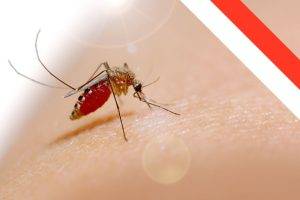Hormonal balance plays a crucial role in women’s overall health and well-being.
From regulating the menstrual cycle to influencing mood, metabolism, and reproductive health, hormonal balance plays a significant impact on various aspects of our lives.
Achieving and maintaining hormonal balance is essential for optimum health and vitality.
This ultimate guide aims to provide valuable insights and practical strategies for achieving hormonal equilibrium and nurturing overall health.
Understanding Hormonal Imbalance and its Impact on Women’s Well-being
Hormones serve as chemical messengers in the body, orchestrating numerous physiological processes. However, various factors, including lifestyle, diet, stress, and genetics, can disrupt the delicate balance of hormones, leading to hormonal imbalances.
By understanding the fundamentals of hormonal imbalance, you can gain insights into the importance of achieving harmony within their endocrine system.
The Prevalence of Hormonal Disorders
Hormonal disorders can significantly impact the delicate balance of the menstrual cycle. Among them, polycystic ovary syndrome (PCOS) and thyroid imbalances are prevalent concerns.
Polycystic Ovary Syndrome (PCOS):
PCOS, a hormonal disorder, is characterised by hormonal imbalances, ovarian cysts, and metabolic disturbances. This condition can disrupt the regularity of the menstrual cycle, leading to irregular or absent periods. Women with PCOS may also experience excessive hair growth, acne, and struggles with weight management.
Furthermore, PCOS can impact fertility and increase the risk of developing type 2 diabetes and cardiovascular conditions. Early diagnosis and management, including lifestyle modifications such as a balanced diet and regular exercise, are crucial in restoring hormonal balance and promoting regular menstrual cycles.
Thyroid Disorders:
Thyroid imbalances, including hypothyroidism (underactive thyroid) and hyperthyroidism (overactive thyroid), can significantly impact the menstrual cycle and hormonal equilibrium. Hypothyroidism may lead to prolonged or heavy menstrual bleeding, while hyperthyroidism can cause shorter or lighter periods. Both conditions can also contribute to menstrual irregularities, affecting the timing and duration of the cycle. Proper diagnosis and management of thyroid disorders, including medication and lifestyle adjustments, are essential in restoring hormonal balance and maintaining regular menstrual cycles.
Navigating the Menstrual Cycle:
By gaining a comprehensive understanding of their menstrual health, women can navigate their monthly cycles with confidence and optimise their overall well-being.
The menstrual cycle is a complex interplay of hormones and physiological changes that occur within a woman’s body. On average, the menstrual cycle lasts around 28 days, although variations are common. It consists of four distinct phases: the menstrual phase, follicular phase, ovulation, and the luteal phase. Each phase serves a unique purpose and contributes to the overall reproductive health.
Menstrual Phase: During this phase, hormone levels, particularly estrogen and progesterone, are at their lowest.
Follicular Phase: As the follicles grow, they produce estrogen, preparing the uterus for potential pregnancy.
Ovulation: This stage is triggered by a surge in luteinising hormone (LH).
Luteal Phase: If fertilisation does not occur, hormone levels decrease, and the uterus lining starts to shed, marking the start of the next menstrual phase.
Conditions like dysmenorrhea (painful periods) and premenstrual syndrome (PMS) can impact their quality of life. Cultural factors, such as dietary habits, traditional remedies, and stressors, can influence how these challenges manifest and are managed.
The Role of Nutrition in the Menstrual Cycle
Proper nutrition plays a pivotal role in promoting hormonal balance, directly influencing the various phases of the menstrual cycle. Consuming a balanced diet, rich in essential nutrients, can support the production and regulation of hormones throughout the reproductive years.
Let’s explore how nutrition ties into the different phases of the menstrual cycle and its impact on overall hormonal health.
Menstrual Phase: During the menstrual phase, iron levels may be depleted due to blood loss. Incorporating iron-rich foods such as leafy green vegetables, lean meats, and legumes can help replenish iron stores, supporting energy levels and combating fatigue commonly experienced during menstruation.
Follicular Phase: The follicular phase is characterised by the development of follicles and rising estrogen levels. Support this phase by consuming phytoestrogen-rich foods like soy, lentils, and flaxseeds. Phytoestrogens mimic estrogen in the body, helping to regulate hormonal fluctuations and support a healthy menstrual cycle.
Ovulation: As ovulation approaches, healthy fats play a crucial role in hormone production. Including omega-3 fatty acids found in fatty fish, walnuts, and chia seeds can promote the release of eggs, support the maturation of follicles, and reduce inflammation.
Luteal Phase: The luteal phase is characterised by progesterone dominance. Magnesium-rich foods such as leafy greens, nuts, and whole grains can help promote relaxation, reduce PMS symptoms, and support a healthy luteal phase.
In addition to these specific nutrients, maintaining overall balance and consuming a diverse range of whole foods is vital. Adequate hydration, minimising processed foods, and avoiding excessive sugar and caffeine intake can further contribute to hormonal balance and support optimal menstrual health.
Traditional Asian Foods for Hormonal Regulation
Traditional Asian foods have long been recognised for their potential benefits in promoting hormonal regulation among women. Incorporating these foods into the diet can provide natural compounds that support hormonal balance.
Soy-based foods, such as tofu and tempeh, are rich in natural plant oestrogens called isoflavones. These compounds have a structure similar to human oestrogens and may help modulate oestrogens levels in the body. By consuming soy-based foods in moderation, women can potentially benefit from the oestrogens -like effects of isoflavones, supporting hormonal balance during different phases of the menstrual cycle.
Turmeric, possesses potent anti-inflammatory properties. Curcumin, the active component in turmeric, has been shown to reduce inflammation and alleviate menstrual pain.
Seaweed, a staple in many Asian cuisines, offers a rich source of iodine and other essential minerals. Iodine plays a crucial role in supporting thyroid function, which is closely linked to hormonal balance.
Lifestyle Practices for Hormonal Harmony
Beyond proper nutrition, incorporating certain lifestyle practices can contribute significantly to hormonal harmony. Here are some key tips for achieving hormonal balance through lifestyle practices:
1. Stress Management
Chronic stress can disrupt the delicate balance of hormones in the body. Engaging in stress-reducing activities such as meditation, yoga, deep breathing exercises, or mindfulness practices can help regulate stress hormones like cortisol and promote overall balance.
Dedicate regular time for relaxation and self-care to counteract the demands of daily life.
2. Regular Physical Activity
Engaging in regular physical activity is vital for hormonal health. Exercise helps regulate hormonal levels, improve mood, and support overall well-being. Find an activity that brings joy and make it a part of your lifestyle. Aim for at least 150 minutes of moderate-intensity exercise per week, or as advised by a healthcare professional.
3. Prioritise Sleep
Adequate sleep is essential for hormone regulation and rejuvenation. During sleep, the body repairs and restores itself, including hormone balance. Aim for a consistent sleep schedule and ensure you get 7–9 hours of quality sleep each night.
Create a calming sleep environment, establish a bedtime routine, and limit exposure to electronic devices before sleep to promote restful sleep.
4. Mindful Time Management
Balancing responsibilities and activities is crucial for managing stress and optimizing hormonal balance. Practice mindful time management by prioritising tasks, setting realistic goals, and learning to delegate or say no when necessary.
By managing your time effectively and creating space for relaxation and self-care, you can reduce stress levels and maintain hormonal harmony.
Remember that everyone’s journey to hormonal balance is unique, and it may take time to find the practices that work best for you. Listen to your body, pay attention to how different activities make you feel, and make adjustments accordingly. Seek support from healthcare professionals or wellness experts who can provide guidance tailored to your specific needs.
By incorporating these practices into your daily routine, you can take proactive steps toward optimising hormonal balance, enhancing overall well-being, and living a more fulfilling life.













